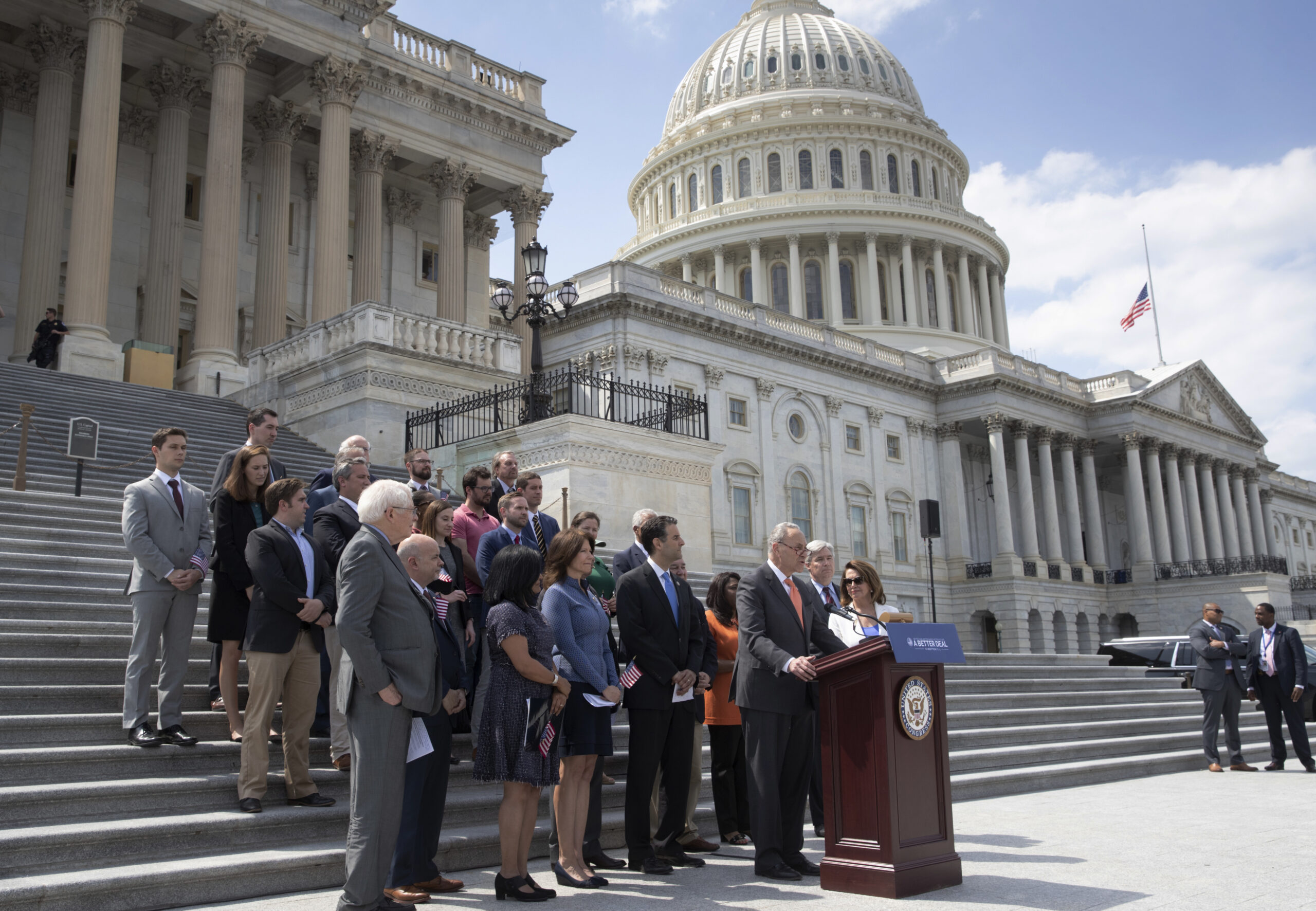Democrats who were hoping for a “blue wave” in 2018 have had some cold water thrown on their hopes, at least based on recent polls assessing key Senate races.
The problem boils down to this: Democratic incumbents are in danger of losing in three key states, while they remain either behind or locked into tight contests in four races that they’d need to flip. In the North Dakota race, Democratic candidate Sen. Heidi Heitkamp is behind Republican candidate Rep. Kevin Cramer by double digit margins, a woeful predicament for a Democrat who has tried to tout her willingness to work with President Donald Trump (who won North Dakota decisively in 2016). Less dire but still troubling for Democrats are their prospects in Missouri, where Sen. Claire McCaskill is the incumbent, and Florida, where the incumbent in Sen. Bill Nelson. The most recent survey in the Sunshine State shows the Republican candidate, Gov. Rick Scott, with a slight lead over Nelson, whereas Nelson had had a close lead prior to that poll. Similarly, the Republican candidate in Missouri — that state’s attorney general, Josh Hawley — alternates between having a slight lead over McCaskill, being tied with her or being slightly behind in the recent surveys there.
Even if Democrats are able to hold their seats in Florida and Missouri (North Dakota seems far-fetched at this point), they will still need to flip as many of the vulnerable seats as possible to gain control the chamber. Four states have become the focus of these hopes: Texas, where Republican Sen. Ted Cruz has maintained a decisive lead in polls over Democrat Rep. Beto O’Rourke; Tennessee, where aside from one recent poll, surveys have consistently shown Republican Rep. Marsha Blackburn with a sizable lead over Democratic former Gov. Phil Bredesen; Nevada, where polls show that Republican Sen. Dean Heller has maintained a slight but solid lead over Democratic Rep. Jacky Rosen; and Arizona, where Democratic Rep. Krysten Sinema and Republican Rep. Martha McSally have flipped back and forth in polls regarding who is in the lead.
The situation is better for Democrats when it comes to their hope of flipping the House of Representatives, but not to the point where complacency is a viable option. Fivethirtyeight.com projects that Democrats have a 6 out of 7 chance of taking back the House, but The Washington Post’s Sean Sullivan published an analysis on Saturday that was more pessimistic.
Democratic hopes for a wave election that would carry them to a significant House majority have been tempered in recent weeks amid a shifting political landscape and a torrent of hard-hitting attack ads from Republicans.
Democrats remain favored to win, but GOP leaders believe they can minimize the number of seats they would lose — and, perhaps, find a path to preserving their advantage in the chamber.
The tightening, with just over two weeks left, reflects how President Trump’s rising approval rating and the polarizing fight over Supreme Court Justice Brett M. Kavanaugh appear to be boosting the party’s candidates in a number of conservative and rural districts that have been considered up for grabs.


